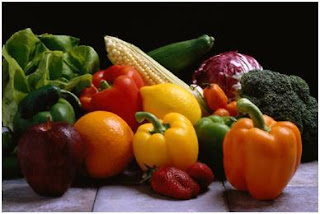Pinellas County Extension offers residents a wide variety of classes to help them make sustainable decisions. Be sure to check out our classes at Brooker Creek Preserve, Weedon Island Preserve, and online.
Brooker Creek:
March 5, 2011 - Guided Hike
March 5, 2011 - Pinellas Energy Efficiency Project
March 10, 2011 - Book-Time at Brooker
March 12, 2011 - Guided Hike
March 12, 2011 - Rain Harvesting
March 12, 2011 - Discovering Nature with Your Child
March 19, 2011 - Guided Hike
March 24, 2011 - Book-Time at Brooker
March 26, 2011 - Extended Guided Hike- Winter Wonders
March 26, 2011 - Butterfly Gardening 101
Commercial (Pesticide/FNGLA/ISA) CEUs:
March 7, 2011, 9:00 am - Spanish Lawn/Landscape Maintenance BMPs
March 7, 2011, 2:00 pm - Spanish Lawn/Landscape Maintenance BMPs
March 14, 2011, 9:00 pm - Lawn/Landscape Maintenance BMPs
March 14, 2011, 2:00 pm - Lawn/Landscape Maintenance BMPs
March 17, 2011 - CEU Variety Pack. Take one or take them all!
March 23, 2011 - Roundup License Training – LCLM & LLO Review
Extension Programs:
March 2, 2011 - Restoring Nature”s Balance
March 6, 2011 - Bird & Wildlife Walk
March 10, 2011, 2:00 pm - Repotting Orchids
March 10, 2011, 6:15 pm - Repotting Orchids
March 15, 2011 - Your Carbon Footprint
March 15, 2011 - Pinellas Energy Efficiency Project
March 22, 2011 - Pinellas Energy Efficiency Project
March 22, 2011 - Landscaping for Upland Wildlife Walk
March 23, 2011 - Water Conservation
Solutions in 30:
March 2, 2011 - Low-Cost, No-Cost Ways to Lower Your Power Bill
March 9, 2011 - Green Office Practices
March 16, 2011 - Everyday Money Lessons to Teach Your Children
March 30, 2011 - Green Spaces
Weedon Island:
March 5, 2011 - Guided Hike
March 10, 2011 - Wee-Time at Weedon: Night Fliers
March 11, 2011 - Great Weedon Bird Quest
March 12, 2011 - Guided Hike
March 12, 2011 - People”s Use of Plants Through Time
March 12, 2011 - Celebrate Florida Archaeology 2001
March 12, 2011 - Life & Lunch in a 9th Century Indian Village
March 17, 2011 - Sustainable Floridians Open Orientation
March 17, 2011 - Plant Usage By Prehistoric Floridians
March 19, 2011 - Photography Hike
March 19, 2011 - Guided Hike
March 19, 2011 - Pinellas Energy Efficiency Project
March 24, 2011 - Wee-Time at Weedon: Ten Little Rabbits
March 26, 2011 - Guided Hike
You can register for classes online at www.pinellascountyextension.org
Brooker Creek:
March 5, 2011 - Guided Hike
March 5, 2011 - Pinellas Energy Efficiency Project
March 10, 2011 - Book-Time at Brooker
March 12, 2011 - Guided Hike
March 12, 2011 - Rain Harvesting
March 12, 2011 - Discovering Nature with Your Child
March 19, 2011 - Guided Hike
March 24, 2011 - Book-Time at Brooker
March 26, 2011 - Extended Guided Hike- Winter Wonders
March 26, 2011 - Butterfly Gardening 101
Commercial (Pesticide/FNGLA/ISA) CEUs:
March 7, 2011, 9:00 am - Spanish Lawn/Landscape Maintenance BMPs
March 7, 2011, 2:00 pm - Spanish Lawn/Landscape Maintenance BMPs
March 14, 2011, 9:00 pm - Lawn/Landscape Maintenance BMPs
March 14, 2011, 2:00 pm - Lawn/Landscape Maintenance BMPs
March 17, 2011 - CEU Variety Pack. Take one or take them all!
March 23, 2011 - Roundup License Training – LCLM & LLO Review
Extension Programs:
March 2, 2011 - Restoring Nature”s Balance
March 6, 2011 - Bird & Wildlife Walk
March 10, 2011, 2:00 pm - Repotting Orchids
March 10, 2011, 6:15 pm - Repotting Orchids
March 15, 2011 - Your Carbon Footprint
March 15, 2011 - Pinellas Energy Efficiency Project
March 22, 2011 - Pinellas Energy Efficiency Project
March 22, 2011 - Landscaping for Upland Wildlife Walk
March 23, 2011 - Water Conservation
Solutions in 30:
March 2, 2011 - Low-Cost, No-Cost Ways to Lower Your Power Bill
March 9, 2011 - Green Office Practices
March 16, 2011 - Everyday Money Lessons to Teach Your Children
March 30, 2011 - Green Spaces
Weedon Island:
March 5, 2011 - Guided Hike
March 10, 2011 - Wee-Time at Weedon: Night Fliers
March 11, 2011 - Great Weedon Bird Quest
March 12, 2011 - Guided Hike
March 12, 2011 - People”s Use of Plants Through Time
March 12, 2011 - Celebrate Florida Archaeology 2001
March 12, 2011 - Life & Lunch in a 9th Century Indian Village
March 17, 2011 - Sustainable Floridians Open Orientation
March 17, 2011 - Plant Usage By Prehistoric Floridians
March 19, 2011 - Photography Hike
March 19, 2011 - Guided Hike
March 19, 2011 - Pinellas Energy Efficiency Project
March 24, 2011 - Wee-Time at Weedon: Ten Little Rabbits
March 26, 2011 - Guided Hike
You can register for classes online at www.pinellascountyextension.org




